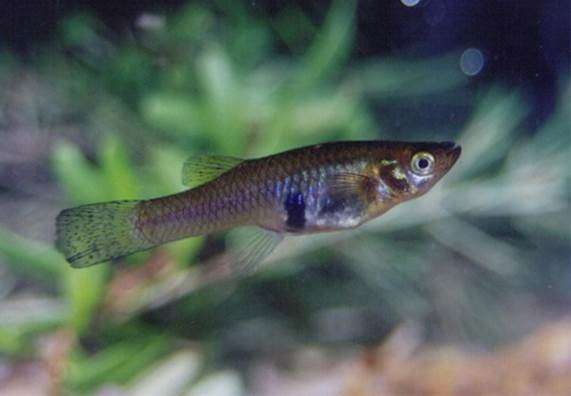The invasive success of the mosquitofish is due to its genetic variability

The Eastern gambusia (Gambusia holbrooki), also known as the mosquitofish, is one of the world's 100 most invasive species. To understand its expansion across Europe from Spain, where it was introduced in the 1920s, a group of Spanish researchers has analysed, for the first time, the evolutionary changes of this animal through its genes. According to the study, genetic variability has allowed this fish to adapt and spread throughout its new environment.
Havoc can be wreaked on native ecosystems when a foreign species is introduced, becomes acclimated and expands. Biological invasions are one of the main global threats to biodiversity and, for that reason, the subject of careful study.
The Eastern gambusia (Gambusia holbrooki), also known as the mosquitofish, was taken from the United States to Spain in the 1920s as a way to naturally control disease-carrying mosquitoes, such as the ones carrying malaria.
This animal, however, has had an enormous environmental impact on local fauna, thus becoming one of the world's 100 most harmful invasive exotic species, according to the International Union for Conservation of Nature (IUCN).
To understand the evolutionary changes this species has undergone while adapting to European waters, a group of Spanish researchers, led by Manel Vera and José Luis García-Martín from the University of Girona, has compared the genomes of the fish in both ecosystems.
"This is the first genomic study that demonstrates the role played by genetic drift and selection in invasive processes in freshwater fish," asserts Vera -a professor in the Biology Department- to SINC.
The study, published in the journal Molecular Ecology, confirmed that levels of genetic diversity in Spanish mosquitofish populations are significantly reduced. This is due to the fact that few specimens were used to introduce the species to Spain.
But the experts detected that there was indeed variability (variation of genetic material within the species) in the genes associated with the survival of individuals. "When the variability in these genes is important to the survival of specimens, maintaining it becomes especially important in invasive processes," comments the chief researcher of the study. "It is clear that the first thing that individuals arriving to a new environment must do is survive," adds Vera.
Effects in colonised ecosystems
During the invasion, the conservation of genetic polymorphism in mosquitofish favours their survival and has implications in the habitats they spread throughout.
"Typically, an introduced species is expected to adapt worse than those that are found there naturally, as the latter possess local adaptations to this environment," points out Manel Vera to SINC. "Problems arise when the introduced species is better than the native species," he acknowledges.
Since their arrival to Spanish waters, these fish have proved to adapt quickly, spreading to the lower reaches of rivers and marshlands on the Iberian Peninsula and in other European countries. "These fish are a real danger to native species," declares Vera.
The mosquitofish displaces the rest of the animals, competes for the same food and even preys on them. "Since native species are very well adapted to their environments, the variations that strengthen them in that habitat can be useless in the areas they are displaced to," concludes the researcher. Some of the native fish threatened by the mosquitofish include the Valencia toothcarp (Valencia hispánica) and the Spanish toothcarp (Aphanius iberus).
More information: Manuel Vera et al. Genomic survey provides insights into the evolutionary changes that occurred during European expansion of the invasive mosquitofish (), Molecular Ecology (2016). DOI: 10.1111/mec.13545
Journal information: Molecular Ecology
Provided by Plataforma SINC


















